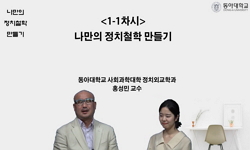The goal of this article is to study the cosmology of the dualism of Dao-Qi(道氣二元論) in Lu-Shi-Chun-Qiu(『呂氏春秋』) from a politico-philosophical perspective. And in this I also will search for reasons why didn`t adopt these the cosmol...
http://chineseinput.net/에서 pinyin(병음)방식으로 중국어를 변환할 수 있습니다.
변환된 중국어를 복사하여 사용하시면 됩니다.
- 中文 을 입력하시려면 zhongwen을 입력하시고 space를누르시면됩니다.
- 北京 을 입력하시려면 beijing을 입력하시고 space를 누르시면 됩니다.
https://www.riss.kr/link?id=A102420682
- 저자
- 발행기관
- 학술지명
- 권호사항
-
발행연도
2011
-
작성언어
Korean
-
주제어
一 ; 『여씨춘추』 ; 『呂氏春秋』 ; 道氣二元論 ; 道氣二元論 ; 우주론 ; 一 ; 정치철학 ; 황제절대권 ; 皇帝絶對權 ; a politico-philosophy ; an emperor`s absolute authority ; cosmology ; Lu-Shi-Chun-Qiu ; the dualism of Dao-Qi ; the one ; Yi
-
KDC
100
-
등재정보
KCI등재
-
자료형태
학술저널
-
수록면
5-26(22쪽)
-
KCI 피인용횟수
5
- 제공처
- 소장기관
-
0
상세조회 -
0
다운로드
부가정보
다국어 초록 (Multilingual Abstract)
The goal of this article is to study the cosmology of the dualism of Dao-Qi(道氣二元論) in Lu-Shi-Chun-Qiu(『呂氏春秋』) from a politico-philosophical perspective. And in this I also will search for reasons why didn`t adopt these the cosmology of the dualism of Dao-Qi to Qin-Shi-Huang(秦始皇). A fact, Lu-Shi-Chun-Qiu recognized faults of the cosmology of Qi-Hua(氣化宇宙論) of Guan-Zi` four- chapters(『管子』4篇) and Jie-Guan-Zi(『?冠子』). For that reason Lu-Shi-Chun-Qiu was changed to the dualism of Dao-Qi(道氣二元論). Nevertheless it didn`t adopt to Qin-Shi-Huang. According to the results of my research in these theme, I knew that Lu-Shi-Chun-Qiu, as divide the difference of being of Dao(道) and Qi(氣), divided the difference of class of the power of an emperor and a subject which correspond to it. It was for secure the power of an emperor`s the discriminative differentiation and specialness and sanctity. This can see plainly to label the one(一) as like Dao(道). Lu-Shi-Chun-Qiu make the one(一) as monarch(君主), and it was called him ``who govern the whole world`` and ``who join the whole world in one``. But as long as the premise of Lao-Zhuang`s the theory of Dao, it don`t be a place which assure an emperor`s absolute authority. Because the peculiarities of Dao is unintentional and purposeless. Then it don`t disclose it`s liking and disliking. Also if the power of a monarch and an emperor was naturally given through the influence of social contradiction, this also can`t be the theory which protect an emperor`s absolute authority. If another social contradiction come up, the power of an emperor who is still in power also will can be disqualified. Even if it is the dualism of Dao-Qi like Lu-Shi-Chun-Qiu, the power of an emperor who is still in power also pass current, but at the same time, the power of a subject and feudal lords also pass current. Also going one step forward, actualities be that as it may, the future`s a class of feudal society is not more and more guarantee which will be like the present. Thus these a logical argument of Lu-Shi-Chun-Qiu still are dangerous for an emperor who is still in power, also it can see to provide a reason which disseise the power of an emperor. Therefore Qin-Shi-Huang flatly refused to accept it. Anyway an emperor who is still in power take a profound interest in that ``how can secure an emperor`s absolute authority in what kind of situation and condition``. Just the thing which meet the these demand is Dong-Zhong-Shu(董仲舒)`s theory of heaven(天論) and the theory on the formation of cosmos from the Original-Qi(元氣宇宙生成論) who the man of the moment of Han-Wudi(漢武帝).
참고문헌 (Reference)
1 張雙棣, "呂氏春秋譯注" 北京大學出版社 2000
2 陳奇猷, "呂氏春秋校釋 (上ㆍ下)" 學林出版社 1995
3 劉蔚華, "직하철학" 철학과 현실사 1995
4 박동인, "동중서 유술독존의 정치철학적 의미" 고려대학교 대학원 2010
5 앤그스 그레이엄, "도의 논쟁자들" 새물결 2001
6 吳光, "黃老之學通論" 浙江人民出版社 1985
7 陳鼓應, "黃帝四經今註今譯" 臺灣商務印書館 2001
8 張濤, "秦漢易學思想硏究" 中華書局 2005
9 張富祥, "王政全書: 『呂氏春秋』與中國文化" 河南大學出版社 2001
10 郭沫若, "十批判書" 東方出版社 1996
1 張雙棣, "呂氏春秋譯注" 北京大學出版社 2000
2 陳奇猷, "呂氏春秋校釋 (上ㆍ下)" 學林出版社 1995
3 劉蔚華, "직하철학" 철학과 현실사 1995
4 박동인, "동중서 유술독존의 정치철학적 의미" 고려대학교 대학원 2010
5 앤그스 그레이엄, "도의 논쟁자들" 새물결 2001
6 吳光, "黃老之學通論" 浙江人民出版社 1985
7 陳鼓應, "黃帝四經今註今譯" 臺灣商務印書館 2001
8 張濤, "秦漢易學思想硏究" 中華書局 2005
9 張富祥, "王政全書: 『呂氏春秋』與中國文化" 河南大學出版社 2001
10 郭沫若, "十批判書" 東方出版社 1996
11 方立天, "中國古代哲學問題發展史" 中華書局 1990
12 呂愼剛, "『呂氏春秋』哲學思想探析" 山東大學敎 2006
13 "『회남자』 「原道訓」ㆍ「天文訓」ㆍ「精神訓」ㆍ「覽冥訓」ㆍ「本經訓」」"
14 "『사기』 「진시황본기」 ; 『說苑』 「正諫」; 『노자』; 『황제사경』 『十大經ㆍ觀」"
15 박동인, "『관자』4편과 b>관자』의 氣化宇宙論" 철학연구회 86 (86): 33-59, 2009
16 劉愛敏, "『淮南子』道論探微" 山東大學敎 2006
17 김용수, "《淮南子》에 나타난 莊學思想" 한국도교문화학회 (20) : 133-178, 2004
동일학술지(권/호) 다른 논문
-
- 철학연구회
- 최천식(Cheon Sik Choe)
- 2011
- KCI등재
-
- 철학연구회
- 윤선구(Sun Koo Yun)
- 2011
- KCI등재
-
- 철학연구회
- 박승억(Seung Ug Park)
- 2011
- KCI등재
-
- 철학연구회
- 손화철(Wha Chul Son)
- 2011
- KCI등재
분석정보
인용정보 인용지수 설명보기
학술지 이력
| 연월일 | 이력구분 | 이력상세 | 등재구분 |
|---|---|---|---|
| 2026 | 평가예정 | 재인증평가 신청대상 (재인증) | |
| 2020-01-01 | 평가 | 등재학술지 유지 (재인증) |  |
| 2017-01-01 | 평가 | 등재학술지 유지 (계속평가) |  |
| 2013-01-01 | 평가 | 등재학술지 유지 (등재유지) |  |
| 2010-01-01 | 평가 | 등재학술지 유지 (등재유지) |  |
| 2008-01-01 | 평가 | 등재학술지 유지 (등재유지) |  |
| 2006-01-01 | 평가 | 등재학술지 유지 (등재유지) |  |
| 2004-01-01 | 평가 | 등재학술지 유지 (등재유지) |  |
| 2001-07-01 | 평가 | 등재학술지 선정 (등재후보2차) |  |
| 1999-01-01 | 평가 | 등재후보학술지 선정 (신규평가) |  |
학술지 인용정보
| 기준연도 | WOS-KCI 통합IF(2년) | KCIF(2년) | KCIF(3년) |
|---|---|---|---|
| 2016 | 0.54 | 0.54 | 0.46 |
| KCIF(4년) | KCIF(5년) | 중심성지수(3년) | 즉시성지수 |
| 0.45 | 0.53 | 1.168 | 0.13 |




 DBpia
DBpia







